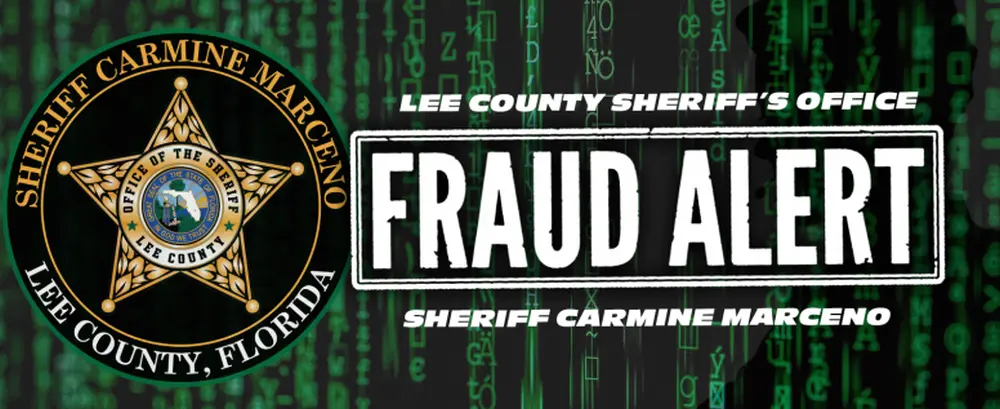The Lee County Sheriff’s Office, in an effort to protect the residents of our county, will always share information regarding newly created scams and trending fraudulent practices.
Despite these efforts, the volume and variety of these scams makes it nearly impossible to catalogue and to combat.
What is feasible is to make our residents aware of the commonalities found in nearly every fraudulent transaction. By familiarizing yourself with these prevalent components, you are far less likely to find yourself a victim of fraud.
Today, let’s discuss unsolicited interactions.
A red flag must be raised immediately due to the fact that “they,” an unknown entity, contacted you. This is a significant component. Unlike a phone call that you made to a business or government agency, or an email/text that you sent, someone has reached out to you. As a result, you are unable to be certain as to the individual or agency that you are interacting with. Remember…caller ID can be manipulated, corporate and government logos can be copied and pasted.
The individual knocking on your front door, much like the random email that you received, is just another example of an unsolicited contact. The ID badge dangling from their lanyard can easily be produced on a home printer.
In all such encounters…be it in person, email, text or by phone…remember that they contacted you and you do not necessarily know who you are dealing with.
This does not mean that the Girl Scout ringing your doorbell, in an effort to sell cookies, is a criminal or fraudster, or that the email message that you receive from your bank is a scam.
However, that element of uninvited and unrequested contact must prompt you to pay close attention to the transaction.
Carpenters and tailors have a universally accepted rule…“measure twice, cut once.” It is a reminder to double check before committing to cutting wood or fabric. Once the cut is made, there is no correcting the error.
Similarly, while perhaps tedious, take the time to “measure twice” before entering into a transaction, sharing personal information or sending money.
If you are a victim of fraud, please contact the Lee County Sheriff’s Office, the Federal Trade Commission at ReportFraud.ftc.gov or by phone at 877-382-4357 and report it to the FBI’s Internet Crime Complaint Center at IC3.gov.




